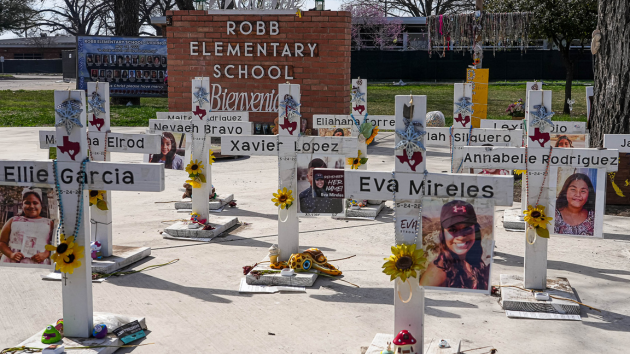Arctic blast grips US as snow and ice spread from Louisiana to Maine
Written by ABC Audio ALL RIGHTS RESERVED on January 16, 2024

(NEW YORK) — More than 200 million Americans are on alert Tuesday for heavy snow, ice and dangerously low wind chills as an arctic blast grips the nation.
Twenty-three U.S. states from Louisiana to Maine were under weather advisories for snow and ice alone early Tuesday, as a mix of rain and freezing rain stretched in a line from New Orleans to Maryland. This line is expected to change to mostly rain by 10 a.m. ET as it heads east and will be over Boston, Massachusetts, by 6 p.m. ET.
Strong thunderstorms are also possible Tuesday in Florida, from Jacksonville to Orlando, Tampa and Fort Myers, where there could be damaging winds and an isolated tornado.
Weather-related school closures are affecting more than a million students nationwide on Tuesday.
Snow was falling early Tuesday in the Northeast throughout much of Pennsylvania and New Jersey as well as from New York City to Boston. The snowfall is expected to continue in those areas all morning.
The weather system is forecast to keep pushing north and snowfall should end in New York City by 5 p.m. ET and in Boston by 8 p.m. ET. There could be a light glaze of ice with freezing rain or drizzle in those areas as temperatures warm back up near the freezing mark.
Up to 6 inches of snow is possible for Washington, D.C., and Baltimore, Maryland, while 1 to 4 inches could accumulate from New York City to Boston. Maine could end up with up to a foot of snow in some places.
Avalanche warnings were in effect Tuesday in Colorado’s Rocky Mountains, including the ski resort towns of Aspen and Vail, as well as in much of Utah’s mountains, including around Salt Lake City.
Lake-effect snowfall could dump an additional 1 to 3 feet in Buffalo, New York, from Wednesday morning through Thursday night.
The snow drought has officially ended after 728 days in Washington, D.C., with 3.4 inches on Monday, after 716 days in Baltimore with 4.1 inches and after 715 days in Philadelphia with 1.5 inches.
New York City has yet to break its snow drought with only 0.4 inches counted on Monday. An area must get 1 inch of snowfall in a single day to break the drought.
Elsewhere, parts of Tennessee such as Nashville and Knoxville saw up to 9 inches of snow on Monday, while 3 to 5 inches accumulated in western Virginia and through Maryland.
Meanwhile, freezing rain is creating ice accumulation in areas in the South, including Baton Rouge, Louisiana, and Birmingham, Alabama.
The wind chill — what temperature it feels like — were below zero Tuesday morning as far south as Dallas, Texas. Wind chill alerts alone amount to 170 million Americans and stretch the middle of the country from border to border. In the north, wind chills could get to -40 degrees Fahrenheit on Tuesday morning. In the southern tip of Texas, in Brownsville, wind chills could reach -10 degrees.
Record low temperatures are possible Tuesday morning in parts of Texas, including Dallas, Houston, Austin, Lubbock and Amarillo; as well as in Baton Rouge, Louisiana; Tulsa, Oklahoma; and Denver, Colorado.
Temperatures are forecast to get a bit warmer later in the week but will still be brutally cold for many. On Friday morning, the wind chill is expected to be around -20 degrees in Kansas City and -15 in Chicago.
Another winter storm is expected to move into the Pacific Northwest later Tuesday and unleash rain from Seattle, Washington, to San Francisco, California, as well as snow to the Cascade mountain range.
The new system is forecast to bring more snow to the Rockies on Wednesday, to the Plains of the Dakotas, Nebraska and Missouri on Thursday and possibly even to Washington, D.C. by Friday.
Copyright © 2024, ABC Audio. All rights reserved.

 KVSP
KVSP 




